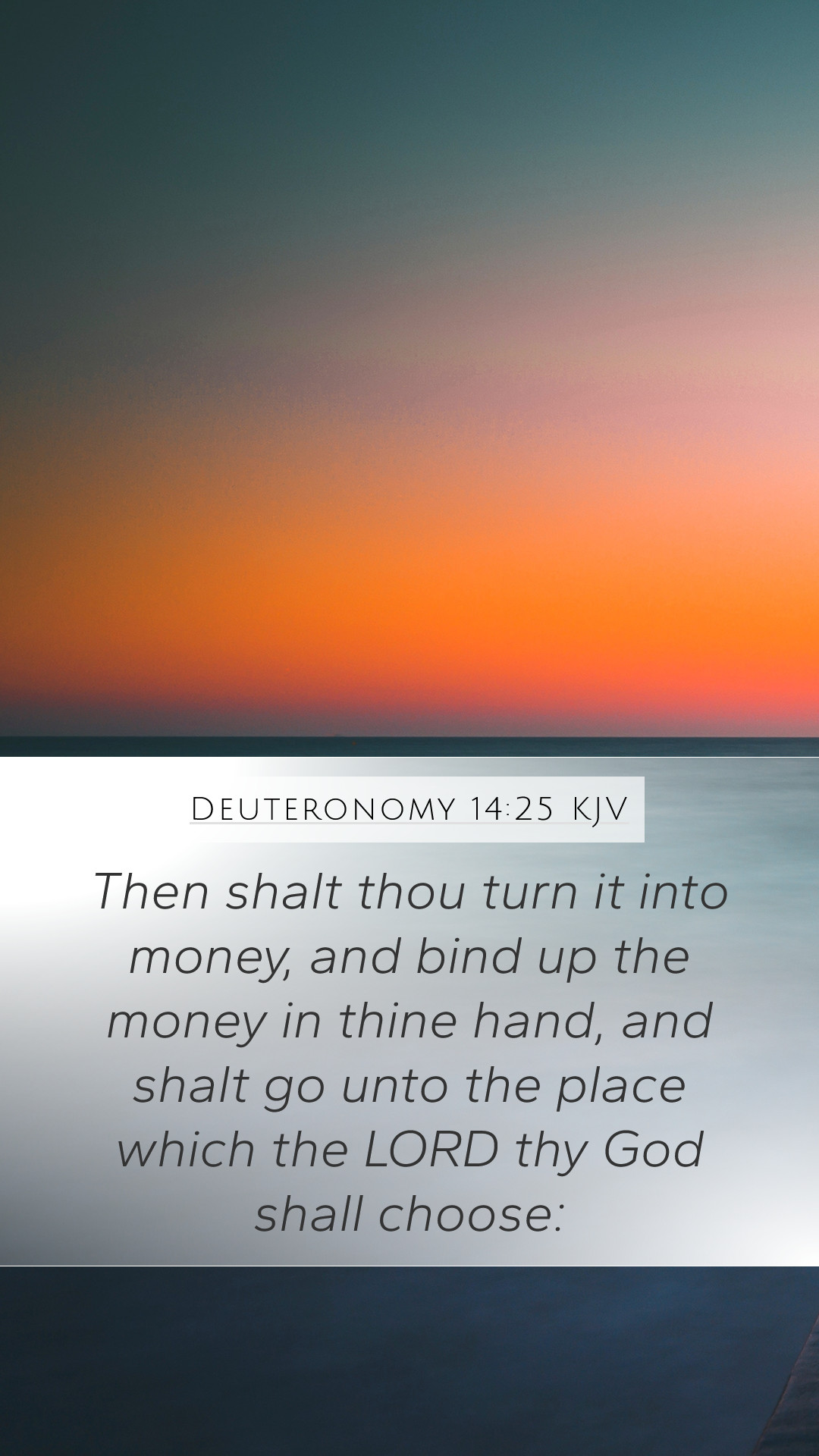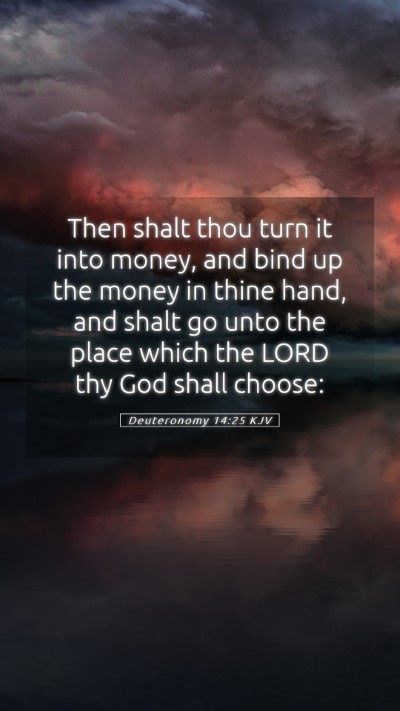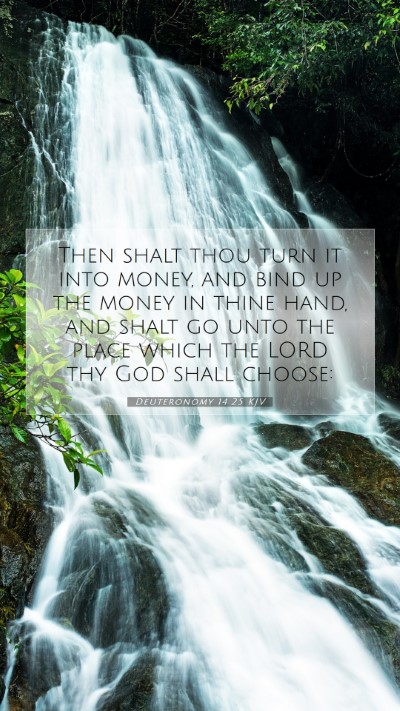Bible Verse Meaning and Interpretation of Deuteronomy 14:25
Deuteronomy 14:25 states: "Then shalt thou lay up the money in thy hand, and shalt go unto the place which the Lord thy God shall choose." This verse is part of a passage that discusses the consumption of tithe and how the Israelites were to properly use their tithes when traveling to the sanctuary.
Understanding the Context
In this scripture, God instructs His people about managing their tithes while they are away from the central sanctuary. The principle behind tithing is both spiritual and practical, ensuring that the people remember to honor God even during their travels. The focus is on joyous participation in worship and gratitude for God's provision.
Commentary Insights
- Matthew Henry: Henry emphasizes the necessity of remembrance and the worshipful spirit of giving, explaining that the instructions about money reflect God's desire for His people to engage in worship with sincerity and heart. He mentions that storing money for tithes facilitates spontaneous joy in the celebration.
- Albert Barnes: Barnes highlights the importance of God's chosen place of worship, noting that the Israelites were to follow God's command and seek His presence. The practicality of carrying money to purchase what they could not bring underscores a deepening relationship with God and His requirements for worship.
- Adam Clarke: Clarke discusses the theological implications of the verse, revealing that it aligns with God's overarching plan for communal worship. He points out that the act of taking money suggests that worship is both an external and internal act, catering to both material and spiritual needs.
Key Themes and Principles
Deuteronomy 14:25 underscores several important themes:
- The Importance of Worship: The act of setting aside tithes emphasizes that worship includes our material possessions, reflecting an acknowledgment of God's provision.
- God's Chosen Place: The verse stresses obedience to divine commands regarding worship locations, reinforcing the concept of sacred space.
- Joyful Participation: Storing and spending tithes on celebratory meals indicates that worship is to be joyous and abundant, celebrating God’s blessings in community.
Application in Modern Life
This verse has profound implications for how believers view generosity and worship today:
- Practicing Generosity: Much like ancient tithes were for worship, sharing resources today helps us to express gratitude towards God.
- Community Worship: Engaging with a community where God is honored—whether through church services or gatherings—rings true to the biblical command of worshiping together.
- Cultivating Joy: Approaching worship with a joyful heart encourages a grateful spirit and deepens one's faith experience.
Related Bible Cross References
- Leviticus 27:30-32: Discusses the principle of tithes as belonging to the Lord.
- Deuteronomy 12:5-7: Instructs the Israelites on where to worship and how to bring offerings.
- Malachi 3:10: Calls believers to bring the full tithe into the storehouse for God's blessings.
Summary
Deuteronomy 14:25 provides essential insights into the practice of worship through the lens of tithing and offerings. With guidance from public domain commentaries, we understand this verse not just as a guideline for ancient Israel, but as a timeless principle that speaks to our heart's posture in worship, generosity, and community today.


